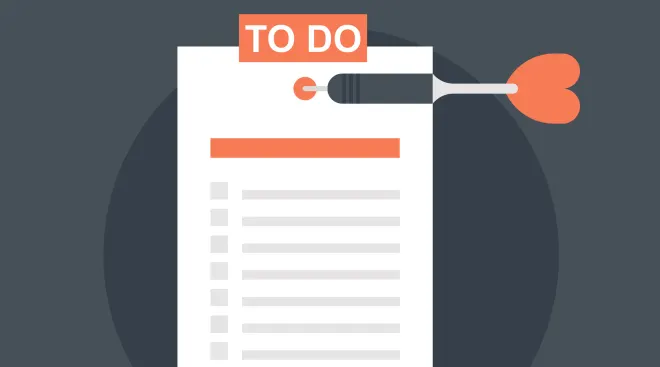How to Deal When Everyone Else Is Pregnant (and You’re TTC)
If you’ve been trying to get pregnant for a while, you’re likely grappling with the full gamut of emotions. Month after month, you remain optimistic that this will be the cycle—that you’ll finally have pregnancy news of your own. And while you struggle, perhaps silently, on your own path, you watch as friends, family members, colleagues and strangers on social media announce their impending arrivals. Seemingly, everyone except you is rocking a telltale bump, and this can make your situation feel all the more isolating. It’s not easy navigating this journey and all the big feelings that come with the territory, but it starts with acknowledging that you’re struggling and prioritizing and protecting your mental health. Here, experts share how to cope when others around you are pregnant, and you’re still trying to conceive.
Whether it’s your first month trying or your second round of in vitro fertilization (IVF), when it comes to fertility, it’s important to understand fact from fiction. According to the American Pregnancy Association, 30 percent of couples get pregnant within about one month of having regular sex, and 85 percent get pregnant within a year. Of course, there are so many factors that need to be considered—age, lifestyle and medical history (among other things) all play roles. No two situations are exactly alike, so your best bet is to get personalized guidance from your doctor, wherever you are on the path to pregnancy. If you haven’t yet had a preconception appointment, that’s a good place to start.
Don’t feel like you have to mask your emotions or put on a happy face for everyone else’s sake. “Society rushes this process, which often leaves a gaping hole where our needs aren’t being met. Give yourself the permission, time and space to honor the real, raw pain of what it’s like to watch others get pregnant when you cannot,” says Parijat Deshpande, MS, author, speaker and the CEO of a global, boutique company dedicated to reducing pregnancy complications and ending preterm birth.
This is not easy, and your natural instinct may be to come down on yourself. Instead, make a concerted effort to show yourself extra love and grace. “Accept that you might feel especially vulnerable in some of these moments, and pour your energy into self-care, whatever that might look like for you,” advises Aparna Iyer, MD, a Dallas-based psychiatrist with a focus on reproductive health. “For some people, that might look like an extra day at the gym. For others, it might be spending more time journaling or connecting with friends.”
Deshpande recommends making room for joy in your day-to-day life: “Double down on pleasure everywhere. Do extra small things for yourself that feel good. Pick up that bouquet of flowers on the way home from work. Pull out the fancy china for Pizza Fridays. Order that shirt you keep staring at. Do more things that make you feel good, not as a way to numb the pain, but as a way to show yourself the balance in life—that pleasure can exist alongside pain.”
Be honest with yourself and accept your feelings, however confusing they may be. Mixed emotions are normal. “Instead of ‘I should be happy for my friend. I should ask about her pregnancy,’ it’s okay to acknowledge how you actually feel. If you’re feeling envious of your friend or irritated that they ‘didn’t even try to get pregnant but did,’ that’s okay,” says Renée Goff, PsyD, PMH-C, a licensed clinical psychologist in Cincinnati, Ohio. “Feelings aren’t right or wrong, and trying to ‘should’ yourself out of how you actually feel doesn’t work and leaves you feeling worse,” says Goff. Iyer adds that you can be happy for your friend while still feeling frustrated or upset with your own situation: “Both sets of emotions are valid and don’t negate each other.”
Trying to conceive can feel so isolating. It might feel like literally everybody in the world is pregnant except for you, but this is, of course, not reality. “Our brains can tell us unhelpful things,” says Iyer. The truth is: there are many others that are on fertility journeys just like you.
Also keep in mind that while people tend to share their wins, they don’t necessarily open up about the challenges they’ve faced along the way. This is true in pregnancy and beyond. “From my couch, I see that many people experience significant anxieties and insecurities along the way to their reproductive goals,” says Iyer. “Remembering this can help when you feel like you’re alone in your challenges.”
If someone close to you is pregnant, have an open and honest conversation with them about how you’re feeling. “Let them know there are days where you’ll be happy to hear how they’re doing and want to be involved, but other days that may be tough,” advises Goff. You don’t have to put on a smile and pretend—and your friend shouldn’t expect that of you either.
If you’re invited to a baby shower and want to attend, strategize ahead of time to make it more manageable for yourself. Plan to take breaks and have an escape plan at the ready. Prepare to be asked by others if or when you’re planning to have children, and have an answer prepared that allows you to gracefully side step anything you don’t want to discuss, advises Iyer.
Of course, if you don’t want to go, that’s also totally fine too. “You can always do something one-on-one with [the guest of honor]. You can take her out to eat to celebrate or any other activity she enjoys,” suggests Goff. Additionally, consider buying a non-baby gift off the registry so you don’t have to pore over infant products. Instead, get your friend a gift certificate to a spa or restaurant.
For starters, avoid knowingly exposing yourself to birth announcements or pictures of your friends’ changing bodies. This will only make you feel worse and fuel the competition you’ve conjured in your mind. Moreover, Goff notes that Instagram and Facebook algorithms know you‘re trying to conceive. “You’ll continue to be bombarded with ads related to pregnancy despite ‘hiding’ or clicking that you no longer want to see them,” she says.
Be mindful that social media groups focused on fertility can be helpful or hurtful: “If you join one, and you find it validating, that’s great,” says Goff. “If it gives you more anxiety, stress or frustration, then mute or leave the group. Do what feels best for you, which may even change day to day.”
“If you’re in a relationship, nurture that relationship outside of fertility,” suggests Deshpande. “Go on date nights, find a new activity to do together, and remind yourselves of how you chose to go on this journey in the first place.” You can be each other’s go-to support.
Find a trusted counselor who can listen to your concerns in a safe place without being quick to offer solutions or judgment. “If your emotions start to feel overwhelming or start to impact your functioning, it may be beneficial to consider seeking therapy to help you work through those emotions and understand them,” advises Iyer.
“People on their fertility journeys can sometimes slip into a state of frustration or even self-loathing of their bodies,” warns Iyer. “However, this is when our bodies need the most amount of nurturing and care, so it’s crucially important to attend to your medical health needs and nutritional needs during this time—for the sake of fertility and also for the sake of your overall wellness.”
Work with a physician, such as an ob-gyn or reproductive endocrinologist, who can listen to your concerns and help you come up with a solution-focused plan to move forward, advises Iyer.
The American College of Obstetricians and Gynecologists (ACOG) recommends an infertility evaluation if you haven’t gotten pregnant after one year of having regular sexual intercourse without the use of birth control. If you’re older than 35, an evaluation is recommended after 6 months of trying. If you’re older than 40, experts recommend getting evaluated right away.
“It’s better to know what you’re up against so you can make informed decisions about your next step,” says Deshpande.
Please note: The Bump and the materials and information it contains are not intended to, and do not constitute, medical or other health advice or diagnosis and should not be used as such. You should always consult with a qualified physician or health professional about your specific circumstances.
Plus, more from The Bump:
Aparna Iyer, is a board-certified psychiatrist with a private practice based in Frisco, Texas. Her work is focused on women’s health, particularly around pregnancy and postpartum mental health.
Parijat Deshpande is an author, speaker and the CEO of a global, boutique company dedicated to reducing pregnancy complications and ending preterm birth. She has served hundreds of women through her programs and one-on-one work, helping them manage pregnancy complications and reclaim a safety and trust in their bodies that they thought was eroded forever.
Renée Goff, PsyD, PMH-C, is a licensed clinical psychologist and founder of Orchid Wellness & Mentoring in Cincinnati, Ohio. She received her doctor of psychology from Wright State University in Dayton, Ohio. American Pregnancy Association, How to Get Pregnant
American College of Obstetricians and Gynecologists (ACOG), Evaluating Infertility
Learn how we ensure the accuracy of our content through our editorial and medical review process.
Navigate forward to interact with the calendar and select a date. Press the question mark key to get the keyboard shortcuts for changing dates.




















































